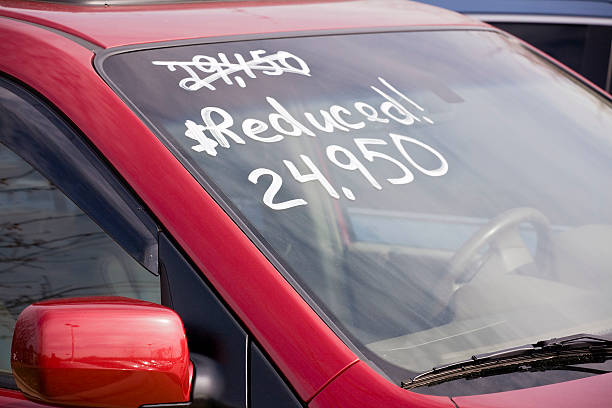Can I cancel insurance at any time? Is there a cancellation fee?
The short answer is yes and yes. Yes, you can cancel your insurance policy at any time. But yes, there will be a cancellation fee if you cancel your policy early.
There can be a lot of confusion about what happens when you cancel your insurance policy early (i.e. before your policy expiry / renewal date), and how short rate cancellation fees are calculated, so we’ve broken it down for you below.
How do insurance cancellations work?
To understand how insurance cancellations work, you first need to understand how insurance premiums work, and the difference between “short rate” and “pro rata” insurance cancellations.
All standard insurance policies have a 12 month (one year) policy term or policy period. This means that when you set up an insurance policy, you are entering into a year-long contract with your insurance company. Your insurance company is agreeing to insure you for a full year, and you are agreeing to pay your insurance company for a full year of insurance coverage.
The price you pay for your insurance policy is called an insurance premium. Insurance premiums are always calculated as an amount owing for a full year of coverage. Your insurance company or brokerage may finance your premium for you so you can make monthly payments, but you are still entering a year-long contract and agreeing to pay for a full year of insurance coverage.
If you cancel your insurance policy before the year long contract is up, your insurance company will typically cancel your policy “short rate” and charge a short rate cancellation penalty.
Short rate vs. pro rata cancellations.
What is the difference between a pro rata insurance cancellation and a short rate insurance cancellation?
Pro rata cancellations.
If your insurance policy is cancelled “pro rata”, you only owe the “earned premium” for the time the policy was in force (there is no short rate cancellation penalty).
Policies are cancelled pro-rata when it is the insurance company cancelling the policy. There are several reasons why this may happen, but it is usually due to big changes in your circumstances (for example, if you started using your truck for business purposes and your insurance company didn’t write commercial insurance, they may cancel the policy). In this case, a full refund is made of any “unearned premiums”. The amount paid for the time the policy was in force is proportional to the remaining time left on the policy. So, if you are 6 months into a 12 month policy, you will get half of the premium refunded if you paid the premium in full when you set up the policy.
Short rate cancellations.
If your policy is cancelled “short rate”, you owe your insurance company the earned premium for the time your policy was in force plus a short rate cancellation fee.
Policies are cancelled short rate when the insured party, or client (you), decides to cancel the policy early and break the terms of the insurance contract.
What is a short rate cancellation fee?
If you cancel your insurance policy before your policy expiry / renewal date, your insurance company will typically charge a percentage of your total insurance premium for the year that is higher than the per day amount would be. This is called a short rate cancellation penalty. Many people refer to this penalty as a “short rate cancellation fee”, though it isn’t really fee. It’s not a flat fee that is charged no matter when the policy is cancelled, it’s a financial penalty that varies in amount based on how long your policy is in force.
How does short rate cancellation work?
The best way to explain how short rate cancellation works is through an example.
To keep things simple, let’s say your insurance premium for your standard 12 month insurance policy is $365. You are paying $365 for 365 days of insurance coverage – so essentially $1 per day of coverage.
If you cancel your policy after 30 days, you may assume that you only owe the insurance company a total of $30 for the time you were insured ($1 for each of the 30 days of coverage). In insurance, this amount is referred to as the earned premium. If your policy is cancelled pro rata, the earned premium is all that you owe for the time the policy was in force.
However, if you are the one requesting the cancellation and your policy is cancelled short rate, this is not the case. Because you are breaking the terms of your insurance contract for a full year (365 days) of coverage, the insurance company is entitled to cancel your policy short rate. This means that you will owe your insurance company more than just the earned premium for the time you were insured, you will owe the earned premium plus a short-rate cancellation penalty.
How to calculate short rate:
The total amount owing to the insurance company when a policy is cancelled short rate (the earned premium plus the short rate cancellation penalty) is called the “amount owing for time on risk”, often just referred to as “time on risk”. This amount is calculated using the insurance company’s “short rate cancellation tables”.
Short rate cancellation tables.
Each insurance company has their own set of short rate cancellation tables for calculating the amount owing for time on risk. These tables outline the percentage of the total annual insurance premium that will be kept when a policy is cancelled early based on the number of days the policy was in force. These tables vary by company, but we’ve provided some examples below to give you an idea of how show rate cancellations work.
Examples of short rate cancellation scenarios:
We’ve put together some examples of short rate cancellation scenarios for you below.
Please note that your insurance company may have different short rate cancellation tables than the ones used in these examples – these are just examples to help illustrate how short rate cancellations work.
Example 1: $365 policy is cancelled after 1 month (30 days)
- You owe a total of $64 for time on risk ($30 in earned premium plus a $34 short-rate cancellation penalty = $64)
- The policy was in force for 30 days, or 8.2% of the 365 day policy period
- You owe 17.5% of the total policy premium for the year based on the insurance company’s short rate cancellation tables
- The short-rate cancellation penalty works out to 9.3% of the total policy premium for the year
Example 2: $365 policy is cancelled after 6 months (182 days)
- You owe a total of $201 for time on risk ($182 in earned premium plus a $19 short-rate cancellation penalty = $201)
- The policy was in force for 182 days, or 49.8% of the 365 day policy period
- You owe 55.1% of the total policy premium for the year based on the insurance company’s short rate cancellation tables
- The short-rate cancellation penalty works out to 5.3% of the total policy premium for the year
Example 3: $365 policy is cancelled after 11 months (335 days)
- You owe a total of $338 for time on risk ($335 in earned premium plus a $3 short-rate cancellation penalty = $338)
- The policy was in force for 335 days, or 91.8% of the 365 day policy period
- You owe 92.6% of the total policy premium for the year based on the insurance company’s short rate cancellation tables
- The short-rate cancellation penalty works out to 0.8% of the total policy premium for the year
As you can see, the longer the policy is in force, the smaller the short rate cancellation penalty is.
CHEEP TIP: Be sure to know when your policy expires or renews to avoid unexpected cancellation penalties.
Why are insurance policies cancelled short-rate?
Insurance policies are cancelled short-rate to help cover the administrative costs associated with setting up an insurance policy. A lot of time and effort goes into setting up a policy, which results in costs for the insurance company. Short rate cancellation fees help offset these costs as they are incurred whether a policy is in force for a week or for the entire year.
Some other things you should know about cancelling your insurance policy early.
In addition to short-rate cancellation penalties, there are a few other things that can cause confusion when insurance policies are cancelled early. We’ve put together an overview for you below.
Your monthly payments may not get stopped right away.
Most companies require at least 5-10 banking days’ notice in order to stop a pre-authorized payment. So, if you cancel your insurance policy on May 1st and your next payment date is May 5th, chances are your next payment will still be withdrawn taken from your account.
You won’t always get a cancellation refund.
When an insurance policy is cancelled, the difference between the total amount you’ve paid toward the policy to date and the total amount owing for time on risk will be calculated. If you’ve paid more toward the policy than is owing for time on risk, you will receive a cancellation refund for the difference. If you’ve paid less toward the policy than is owing for time on risk, you will owe the insurance company for the difference.
At Cheep Insurance, we’re often able to spread your premium over 11 equal monthly payments for you instead of requiring a double down-payment at the beginning (most insurance companies require a double down-payment to get a policy started). This is a convenience we offer our clients who are eligible because we know it’s hard to pull together a big down-payment to get a policy started (especially if you just purchased a car!) But it also means that if you cancel your policy before it expires, you may still owe some money to the insurance company to cover the short-rate cancellation penalty since you don’t have a double down-payment already going toward the total cost of the policy.
Can I switch insurance companies anytime?
As we mentioned above, you can switch insurance companies whenever you’d like – but if you switch mid-policy, there will be a short-rate cancellation fee and the factors listed above must be considered.
You may be considering switching insurance companies because you got a lower quote than you are paying with your current insurer. However, changing insurance companies before renewal will result in a short rate cancellation penalty. The cost of the penalty may cancel out the savings. In this case, you would be better off waiting until your next renewal to switch companies.
Be sure to let your insurance broker know you’re considering switching companies at renewal time as they may be able to help you find an even better price than the one you found. Insurance prices are going up all across Canada right now so it’s possible that your insurance broker can place you with a different insurance company on renewal to save you some money – if they can, it will save you a lot of work vs. switching on your own. There are many advantages of using an insurance broker so it’s always worth it to give your broker a shot at finding you a better price before cancelling your policy.
How to cancel car insurance without charges.
The only way to cancel your car insurance policy without incurring short rate cancellation charges is to do so on your policy expiry date / policy renewal date.
Car insurance works the same way as all other insurance policies (such as home insurance and tenant insurance) – if you’re switching insurance companies mid-policy / cancelling your policy before it’s renewal date, there will be a short rate cancellation penalty.
There are occasionally (though not often) situations that come up where insurance companies will agree to cancel your policy pro rata instead of short rate when you are the one requesting the cancellation.
An example of a situation where an insurance company may agree to cancel your policy pro-rata would be if you were moving to a different province and setting up a new policy with the same insurance company there (insurance works differently in every province so if you’re moving you need to cancel your car insurance policy and set up a new one in the province you’re moving to). If you stay with the same insurance company in the new province, they will often allow you to cancel your policy pro rata instead of short rate.
Have questions about an insurance policy cancellation?
Any questions you have about cancelling your insurance policy must be directed to the insurance broker or company that manages your policy. If you’re a Cheep Insurance client and you want to discuss your policy, payments, or renewal, please don’t hesitate to reach out to us at [email protected] or give us a call at 902-463-1675.







 Most policies insured with Cheep Insurance are Agency Bill/IFS financed policies. You can determine who manages your payments by following the directions below. If you are still not sure who manages your payments, call our team as funds paid directly to the insurance company when they should go to IFS will cause large delays.
Most policies insured with Cheep Insurance are Agency Bill/IFS financed policies. You can determine who manages your payments by following the directions below. If you are still not sure who manages your payments, call our team as funds paid directly to the insurance company when they should go to IFS will cause large delays.